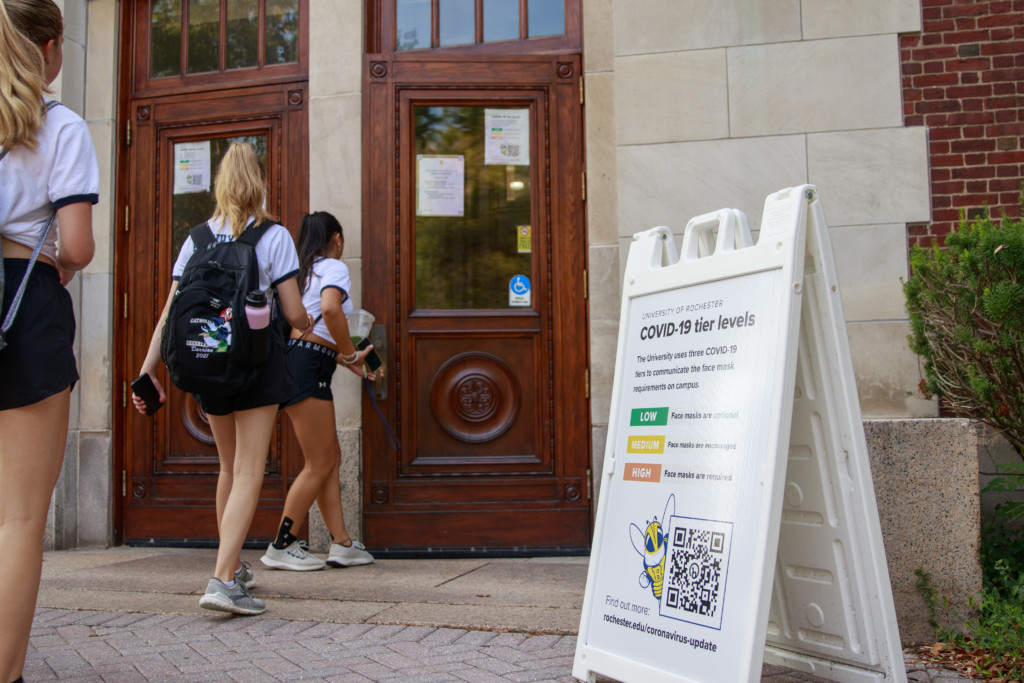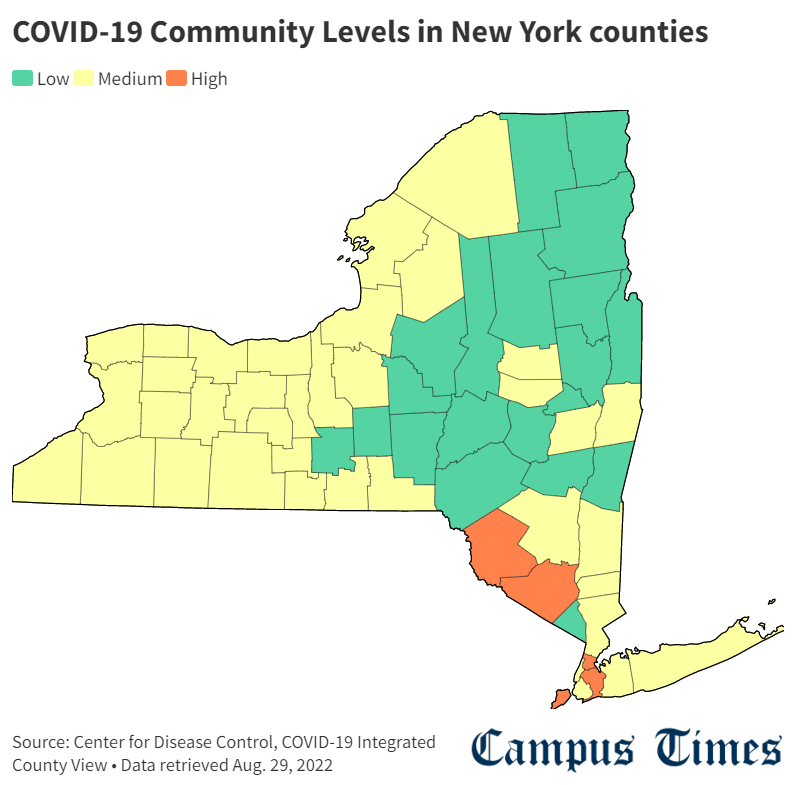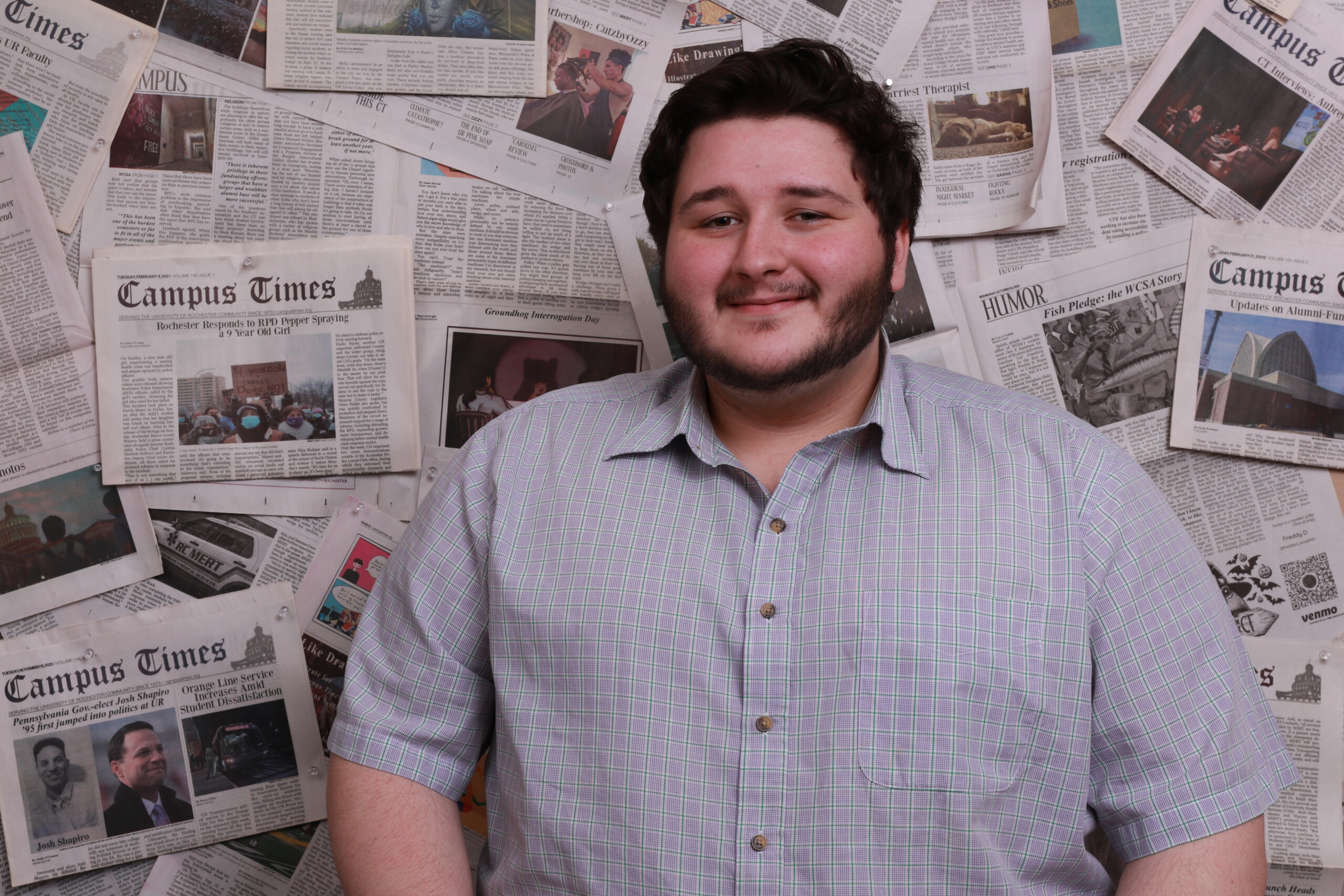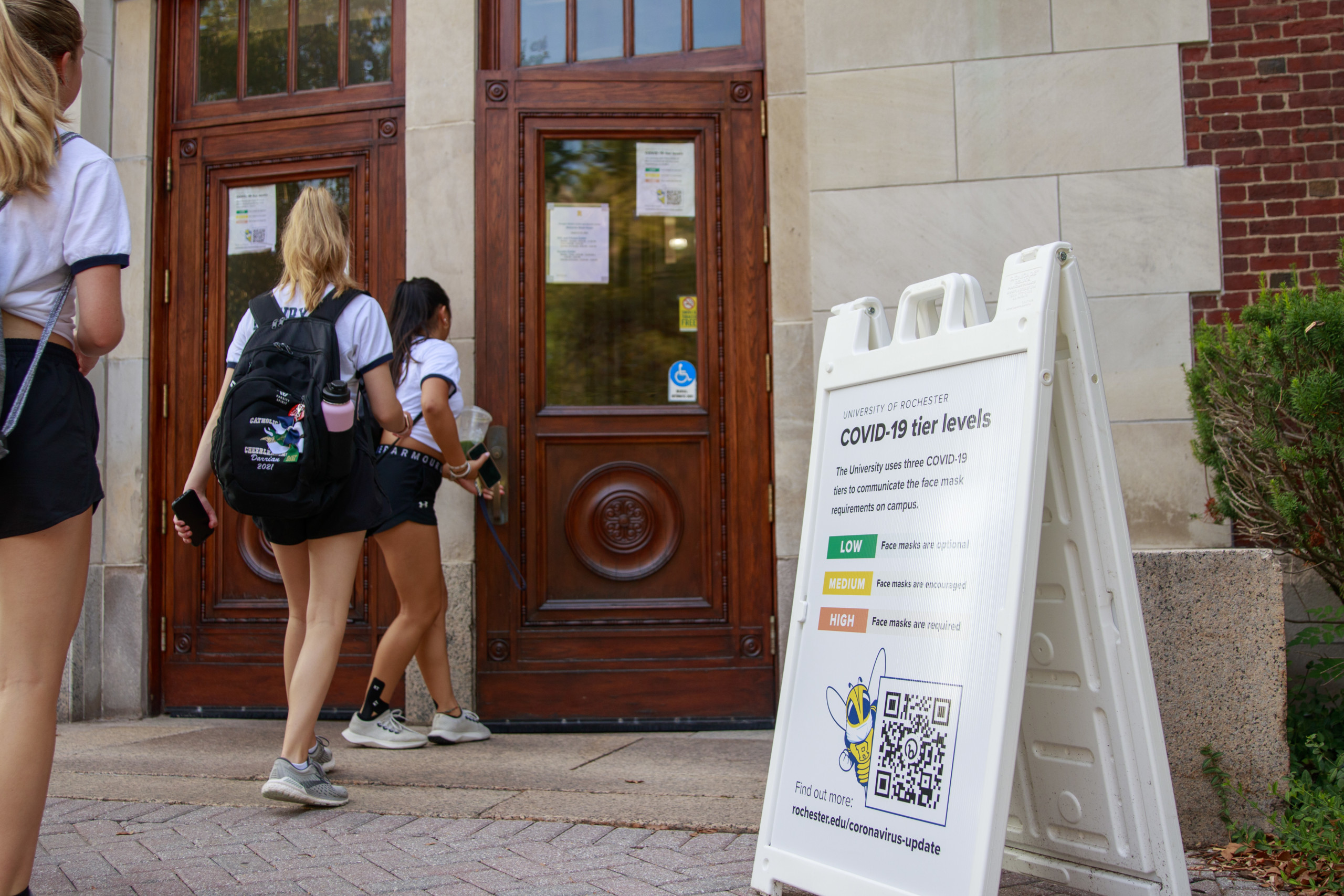The new semester comes with new COVID-19 guidelines as the University has adopted a more flexible approach to River Campus masking, is no longer guaranteeing isolation space, and has diminished Dr. Chatbot’s role.
On March 3, the CDC announced a new “Community Level” approach to masking and social distancing that roots recommendations in local data, according to their website. The model tailors guidelines by assigning counties “low,” “medium,” or “high” Community Levels based on the number of hospital beds occupied, hospital admissions, and the total rate of new COVID-19 cases, all using county-level data.
The University went mask-optional on the River Campus the day after this March update, citing Monroe County’s then-medium Community Level, but did not announce a systematic process to adjust guidelines if that Community Level were to change. However, on June 7, they fully adopted the CDC’s tiering system, allowing for responsive adjustment.
Currently, Monroe County is at a medium community level, according to the CDC’s county map. Face masks will only be required on the River Campus if the county reaches a high Community Level. An Aug. 11 email from Provost David Figlio said all of the University’s patient-facing medical facilities will still require masks. Students, faculty, and staff will only need to complete Dr. Chatbot to enter the Medical Center.
Students can stay updated on masking recommendations via the Face Mask Guidelines section of the university’s COVID-19 Resource Center website.
The Aug. 11 email also said students can pick up self-test kits at UHS and that those testing positive will be required to wear masks and stay in their residence halls for five days. Healthy roommates will also have the option of moving to a University-reserved hotel room for those five days, though the email notes that limited hotel space means this option is not guaranteed.
The June 7 announcement also said the University had suspended its COVID-19 dashboard and daily case updates in @Rochester newsletters.
“We are encouraged by the data showing low rates of COVID infections and hospitalizations in Monroe County, but we continue to keep in mind that COVID is still among us and still a health concern,” Figlio said in the Aug. 11 email. “We believe this guidance ensures safe and manageable methods to address positive cases on campus.”



